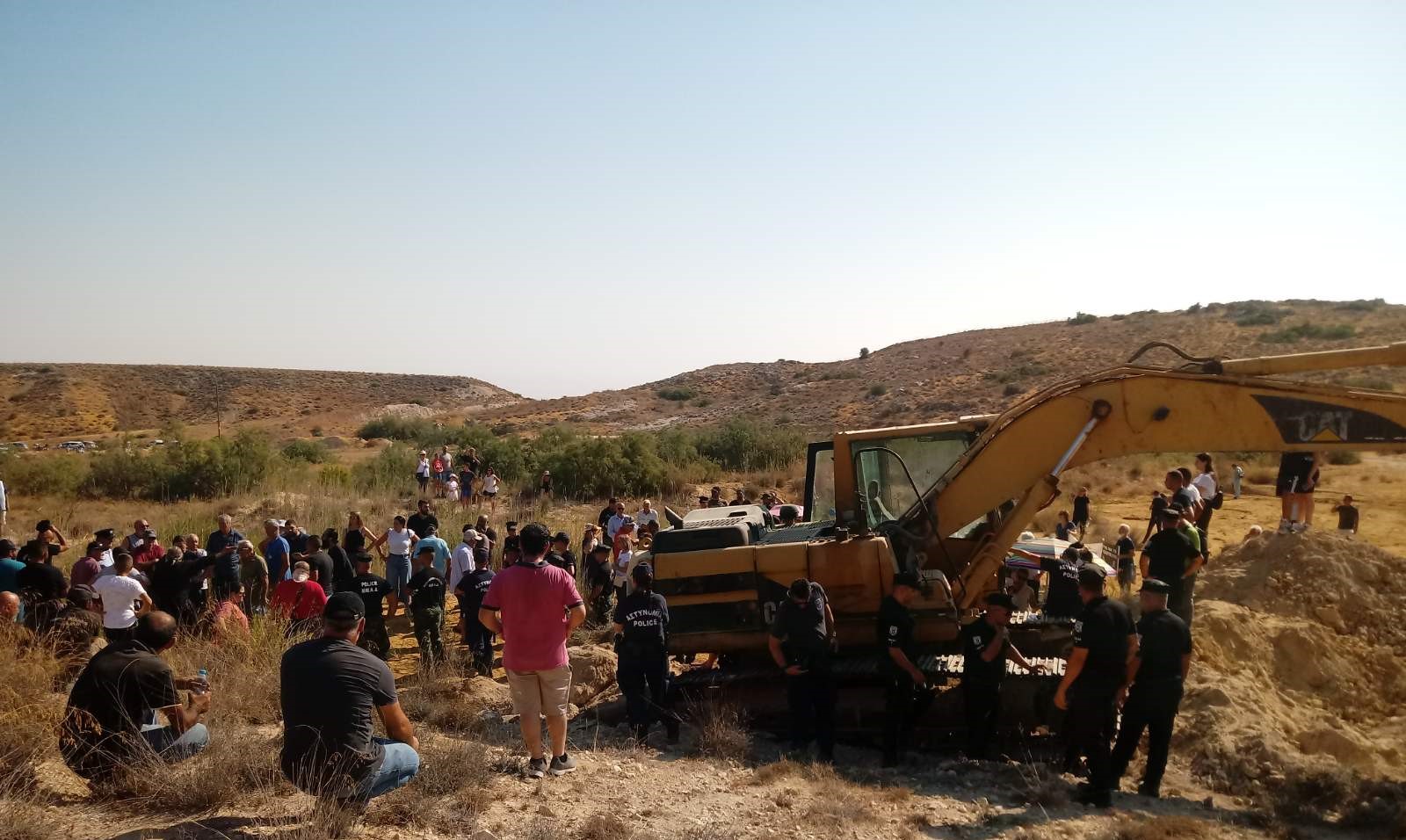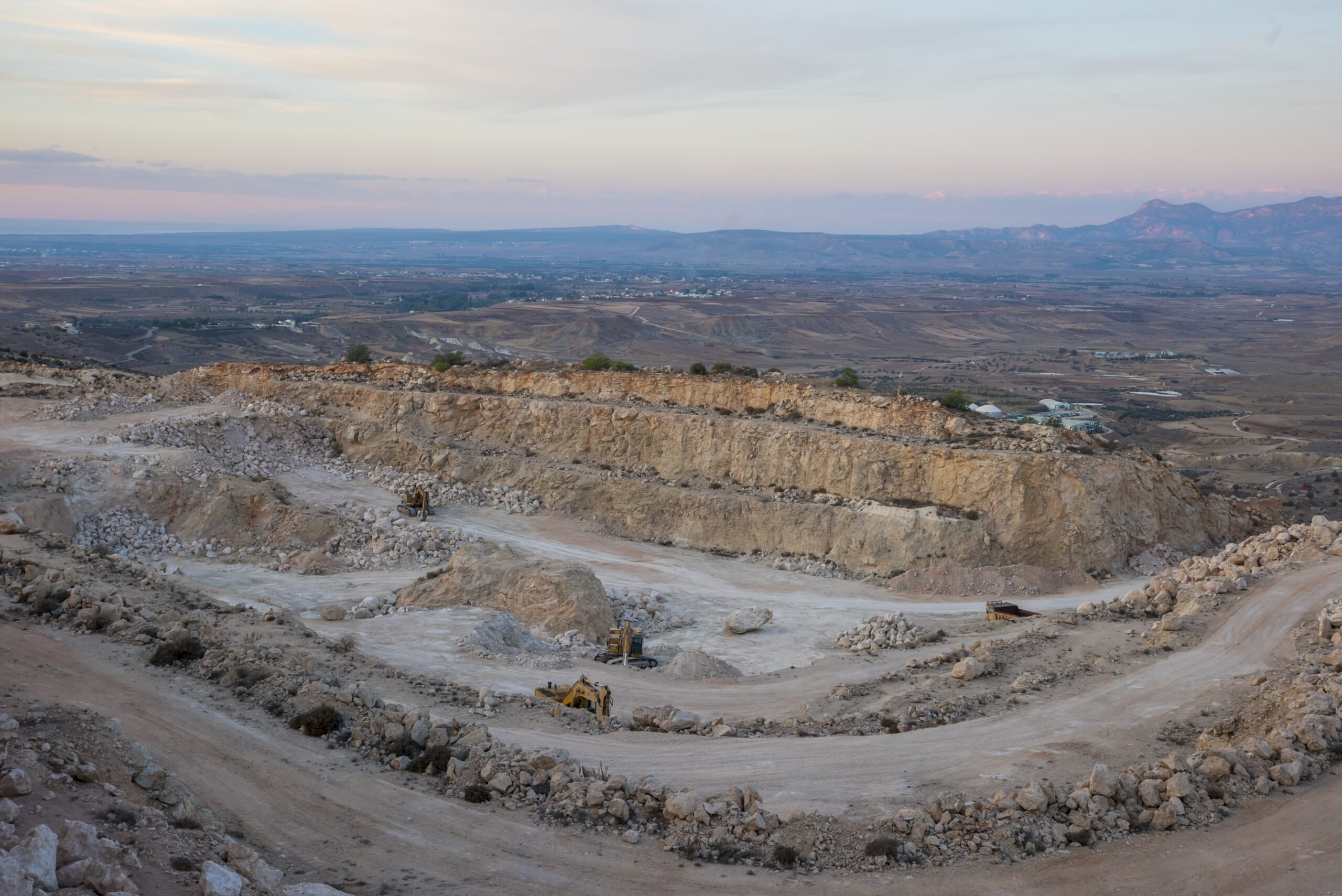Court orders currently see one plant in limbo but communities are all unwilling to host facility
Buoyed by a recent court interim order freezing the process to move an asphalt factory to their area, the affected communities around Mitsero feel confident they will ultimately prevail and halt the planned relocation.
But the Sunday Mail understands that even if the communities win the case, that doesn’t necessarily mean the end of the road. Which begs the question which locality will be saddled with the facility – them or someone else?
Earlier this month the administrative court issued an order preventing any works being carried out in Mitsero for an asphalt plant that’s currently located in Tseri (Dali) and owned by the Prometheas company. The relocated site in Mitsero had already secured a town planning permit and a building permit, with excavators showing up to break ground, only to be thwarted by local residents.
The local communities say the vicinity already has too many nuisance factories and that both the environment and their health will be at risk.
Eight of the 12 affected communities had meanwhile petitioned the administrative court over the town planning permit – which they argued was issued irregularly – and earned a reprieve after the court delivered its interim order. The hearings on the substance of the case get underway in October and, should the plaintiffs manage to get a judgment annulling the town planning permit, that would also void the building permit by default.
Whereas that would mark a win for the residents, it might not be the end of the line. Depending on the wording of the court’s ruling, and on what precise grounds the court voids the town planning permit, the government could then come back and re-initiate the zoning process.
Briefly, the communities around Mitsero argue that the government – chiefly the interior ministry in charge of zoning – did not adequately consult them before selecting the location. Also, they say the decision to pick Mitsero rests on flimsy grounds.
Under the governmental ‘Statement of Policy’, industrial facilities cannot be built on agricultural land – the site of the planned relocation in Mitsero – unless the earmarked land is adjacent to a quarry zone. Because quarrying activities – in this case a factory processing sand used for gravel – already exist in the vicinity, that gave the government the loophole.
The relocation of the factory was decided following a relevant cabinet decision in 2020 to move three asphalt plants from the Tseri and Geri (Dali) area. These are expected to be relocated to the Mitsero, Kalavasos and Koshi areas.
Meantime people living in Dali, who had been affected by the factories, also held a series of demonstrations and demanded an end to their operation. In February, the supreme court issued decrees prohibiting the operation of the asphalt factories in the areas of Geri and Tseri, pending their relocation.
It’s also understood that the government pays monetary compensation to the Prometheas factory in Tseri – destined for Mitsero – while it remains idle.
But Sotiris Kyriacou, community leader of Agrokipia – one of the affected locales – stresses the area cannot take any more pollution. He says measurements have shown that emissions in the vicinity are already three times higher than the permitted level.
“The only relevant study carried out was one commissioned by the company itself, showing that particle emissions from the plant would reach a distance of 650 metres. And, given that the nearest residences to the planned site are 2.8 kilometres away, authorities apparently use that as their justification that it’s OK.”
But the contractor’s study only accounted for the single asphalt plant’s impact on the environment – it didn’t factor in the cumulative effect from the already existing industry -including a slaughterhouse, quarrying, mining.
“If you come here you’ll know what I mean .The air is just foul,” remarks Kyriacou.
“The asphalt plant coming here would be the last straw – this area can’t take any more.”
Still, Kyriacou doesn’t wish to get drawn into a dispute with the residents of Dali who, as he puts it, “likewise understandably” don’t want the factory in their own backyard.
“I find it funny that government people ask us where we’d like the plant to end up – as if it’s our job to decide.”
The Sunday Mail meanwhile hears – but has not corroborated – that a major new investment is being planned for the Dali area. The rumour is that a well-known Greek brand manufacturing dairy products – including halloumi cheese – has applied for a permit to set up shop there. If true, that might help explain the re-jigging in the works.
To Kyriacou’s knowledge, all but two of the 12 communities have never received any compensation from the state for the industrial infrastructure in the wider area.
“But it’s not about the money anyway. Can money fix our health? Will it bring back the people – including young people – who have died from cancer, of which there is a high incidence in our region?”
Asked why he thinks Mitsero got picked for the asphalt factory, as opposed to any other area in Cyprus, Kyriacou has this to say: “When we talk to people from government departments, they confidentially tell us that it was a political decision.”
On this point, Natasa Iacovou, a lawyer representing the eight communities in their case at the administrative court, comments that “there seems to be an absence of by-the-book spatial planning on the part of the state.
“That’s the big-picture takeaway from this case.”
Asked what might happen should they win their case, and in a way guaranteeing the asphalt plant does not go to Mitsero, Iacovou offered: “Obviously that’s the government’s problem. But yes, it’s the million-dollar question – will the plant stay in Dali?”
The hearings will start in October, with a swift verdict thereafter.
But before that – on Thursday – representatives of the communities will have a meeting with President Nicos Anastasiades.
“We want to let the president know about the real situation, about the dangers to the area… as we get the sense that his ministers tend to sugar-coat it when they brief him,” Kyriacou says.
Meanwhile the government also intends to move at least two other asphalt plants – one of them belonging to the company Cyfield and currently in the Dali area – to the vicinity of Kalavasos, near Vassiliko in Limassol.
The factories would be built on what are originally Turkish Cypriot land plots, now under the control of the state.
Unsurprisingly, local residents are up in arms, protesting that their area is already overburdened with heavy industry – the energy centre, the electricity power station, fuel depots, a solid waste treatment plant, a tyre recycling factory, a cement factory, and the list goes on.
Lefteris Fokas, community leader of Kalavasos, counts about 40 industrial installations in the area.
On why he thinks this locale is getting picked on, so to speak, Fokas first cites the government’s official reasons.
“They say they chose this site because of its proximity to the harbour – so a short distance to transport raw materials to the factories – the proximity to the highway, and that the site is situated far from dense urban areas.”
He then adds: “Bottom line, we think they want to help the companies reduce their costs and maximise profits.”
In this case the communities have yet to take legal action – because no town planning permits have been issued, which they might contest.
And they’re still waiting for the Department of the Environment to release the relevant report.
“But I can tell you one thing – we’ll never agree to the asphalt factories coming here,” says Fokas








Click here to change your cookie preferences